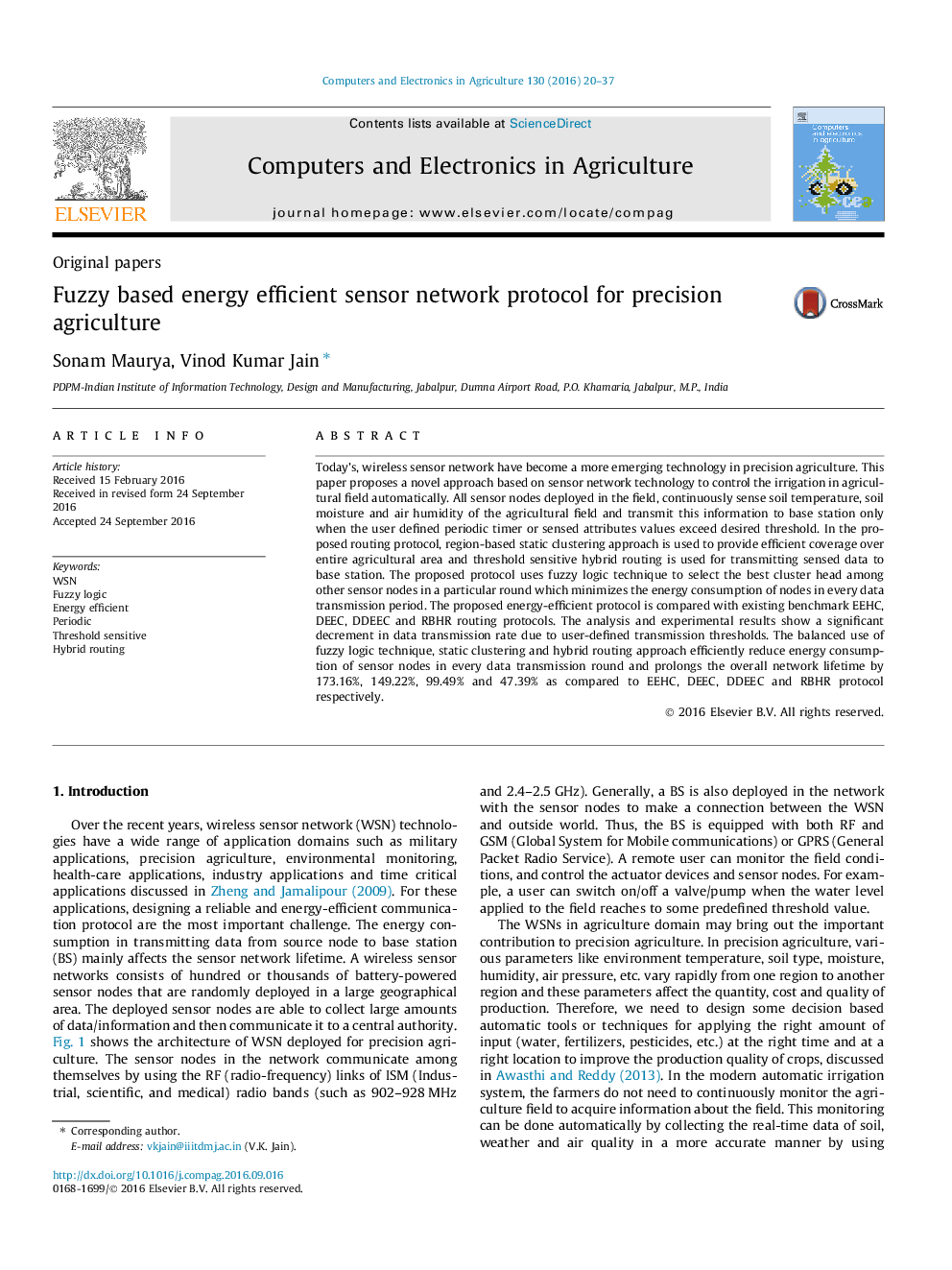| Article ID | Journal | Published Year | Pages | File Type |
|---|---|---|---|---|
| 4759186 | Computers and Electronics in Agriculture | 2016 | 18 Pages |
Abstract
Today's, wireless sensor network have become a more emerging technology in precision agriculture. This paper proposes a novel approach based on sensor network technology to control the irrigation in agricultural field automatically. All sensor nodes deployed in the field, continuously sense soil temperature, soil moisture and air humidity of the agricultural field and transmit this information to base station only when the user defined periodic timer or sensed attributes values exceed desired threshold. In the proposed routing protocol, region-based static clustering approach is used to provide efficient coverage over entire agricultural area and threshold sensitive hybrid routing is used for transmitting sensed data to base station. The proposed protocol uses fuzzy logic technique to select the best cluster head among other sensor nodes in a particular round which minimizes the energy consumption of nodes in every data transmission period. The proposed energy-efficient protocol is compared with existing benchmark EEHC, DEEC, DDEEC and RBHR routing protocols. The analysis and experimental results show a significant decrement in data transmission rate due to user-defined transmission thresholds. The balanced use of fuzzy logic technique, static clustering and hybrid routing approach efficiently reduce energy consumption of sensor nodes in every data transmission round and prolongs the overall network lifetime by 173.16%, 149.22%, 99.49% and 47.39% as compared to EEHC, DEEC, DDEEC and RBHR protocol respectively.
Related Topics
Physical Sciences and Engineering
Computer Science
Computer Science Applications
Authors
Sonam Maurya, Vinod Kumar Jain,
